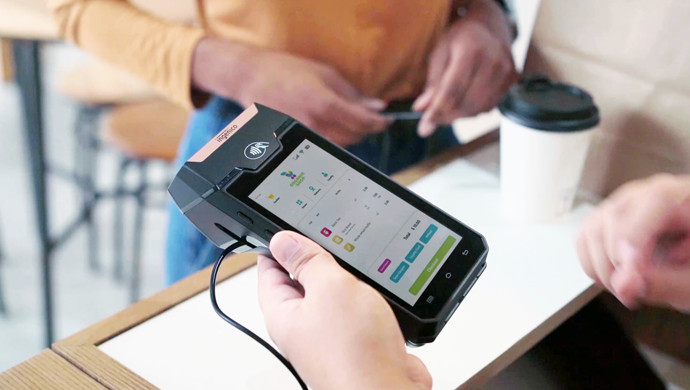[ad_1]

Within the dynamic world of commerce, the entry or transition from on-line to in-store operations presents a profitable but difficult frontier for startups. With a market the place 81% of world retail gross sales nonetheless happen in-store in comparison with 19% e-commerce, the potential for progress and growth on this area is immense.
This shift, fueled by technological developments and evolving client behaviours, affords startups specialising in funds and commerce or associated companies like embedded finance, supply, insurance coverage, and loyalty or rewards, amongst others, a chance to scale and innovate.
Regardless of its complexities, the in-store panorama affords startups increased conversion charges, much less competitors than the saturated on-line market, and an opportunity to boost buyer expertise by tangible interactions.
StartupIN Program: Opening alternatives in in-store commerce
For startups, venturing into in-store funds means tapping into a longtime market with excessive visibility and client attain.
Ingenico, a world cost trade chief, stands on the forefront of this house, providing a complete suite of in-store cost options. Their intensive international footprint and 42 years of innovation and experience within the in-store funds market present startups with a dependable platform to broaden their companies. Ingenico’s sensible POS terminals, managed companies, and cloud-based orchestration platforms present an omnichannel answer, bridging the hole between on-line and bodily commerce.
The StartupIN program by Ingenico is especially instrumental, providing startups the instruments, enterprise connections, and steerage wanted to navigate the in-store panorama efficiently.

Mickael Joye, Startup Integration Lead at Ingenico, elaborated on the corporate’s function in fostering startup progress: “Ingenico isn’t only a facilitator — we’re a driving power for innovation and growth. Our StartupIN program’s mission is to equip startups with numerous assets, professional steerage, and pivotal alternatives for scaling their options inside the in-store funds and commerce sector.”
Joye added, “Extra importantly, our international experience and presence present these rising firms with complete help in navigating the intricate maze of rules and protocols. By doing so, we assist to streamline their journey, easing the usually time-intensive assessments and integrations, and facilitating a smoother and extra environment friendly entry into the market.”
Mickael Joye’s insights into Ingenico’s dedication to enabling startup progress within the in-store funds sector set the stage for understanding these startups’ particular challenges. The journey from idea to market is paved with obstacles and the StartupIN program can present the options that will probably be integral to their success.
The challenges and options
Understanding POS terminal {hardware}: Startups transitioning to in-store areas should navigate the world of cost terminals. With Android open OS terminals, builders can remodel these units from easy cost instruments to complete commerce options.
In-store entry prices: One of many main boundaries for startups shifting into in-store environments is the preliminary funding in POS terminal {hardware}. Ingenico’s StartupIN program immediately addresses this problem by offering startups with the required {hardware} for his or her proof of idea, freed from cost. It reduces the monetary burden on startups but additionally permits them to experiment and innovate with their in-store options with out the priority of upfront {hardware} bills.
Microservice structure & API-driven options: Microservice structure can assist construct in-store options that complement on-line merchandise. This method permits startups to keep up agility and resilience with out compromising their core on-line options.
Scalable infrastructure: In distinction to on-line buying, the place delays are sometimes tolerated and transactions may be revisited, the in-store expertise calls for instant and seamless transactions. Delays or inefficiencies in bodily shops can result in immediate buyer dissatisfaction as customers are unlikely to attend and should go away with out buying. Subsequently, sturdy and scalable infrastructure, supported by cloud expertise with auto-scaling and regional deployment, is crucial in making certain swift, dependable transactions and upholding service-level agreements within the in-store atmosphere.
Automation & service provider onboarding: Startups have to streamline the combination of their options into the various frameworks of retailers, particularly these related to Ingenico’s clients. Devoted service provider administration APIs can considerably ease this integration course of and guarantee environment friendly adaptation and repair supply inside the in-store commerce sector.
Gokula Krishna, Chief Know-how Officer, Anycover highlights the influence of such integration: “Integrating with Android Open OS terminals has been a game-changer for us, bridging the hole between digital comfort and in-store personalisation. The API-driven structure not solely simplifies retailer onboarding but additionally empowers us to innovate quickly, making certain our in-store options are as dynamic and user-friendly as our on-line presence. This has been instrumental in enhancing the buying expertise for our clients and has given us a major edge within the aggressive retail panorama.”
Buyer expertise at Level-of-Sale: Enhancing the in-store expertise entails incorporating POS terminals and mobile-centric components for a user-friendly journey. Applied sciences like QR codes and NFC are important in optimising knowledge seize for effectivity and loyalty applications.
Navigating ECRs and cost system integration: The variety in Digital Money Registers (ECR) protocols poses a major problem attributable to regional variations and legacy points. Every integration have to be approached individually, requiring thorough evaluation and time funding.
Safety in in-store transactions: Guaranteeing safety in in-store transactions is paramount. Startups should adjust to PCI DSS, encrypt knowledge in transit and at relaxation, and keep stringent entry controls to guard buyer knowledge and uphold credibility.
Unlocking progress alternatives
Whereas the in-store funds panorama presents challenges, it is usually ample with alternatives for forward-thinking startups. With the precise methods, akin to leveraging microservices structure, scalable cloud infrastructures, and sturdy safety protocols, startups can overcome the hurdles of infiltrating this house.
The benefits of increased conversion charges, a much less aggressive atmosphere than on-line commerce, and innovation potential make the in-store house engaging. Ingenico’s help by the StartupIN program additional empowers startups to capitalise on these alternatives, paving the way in which for a profitable foray into in-store commerce. Whereas advanced, this journey is a promising avenue for startups to broaden their footprint and influence within the evolving world of commerce.
If you’re an early startup that’s an in-store native or have plans to enter the in-store house, go to the StartupIN Program web site to learn the way Ingenico’s improvements can assist your online business pursue in-store commerce success.
– –
This text is produced by the e27 workforce, sponsored by Ingenico
We will share your story at e27, too. Interact the Southeast Asian tech ecosystem by bringing your story to the world. Go to us at e27.co/promote to get began.
The put up StartupIN by Ingenico: A information to in-store commerce success appeared first on e27.
[ad_2]
Source link

